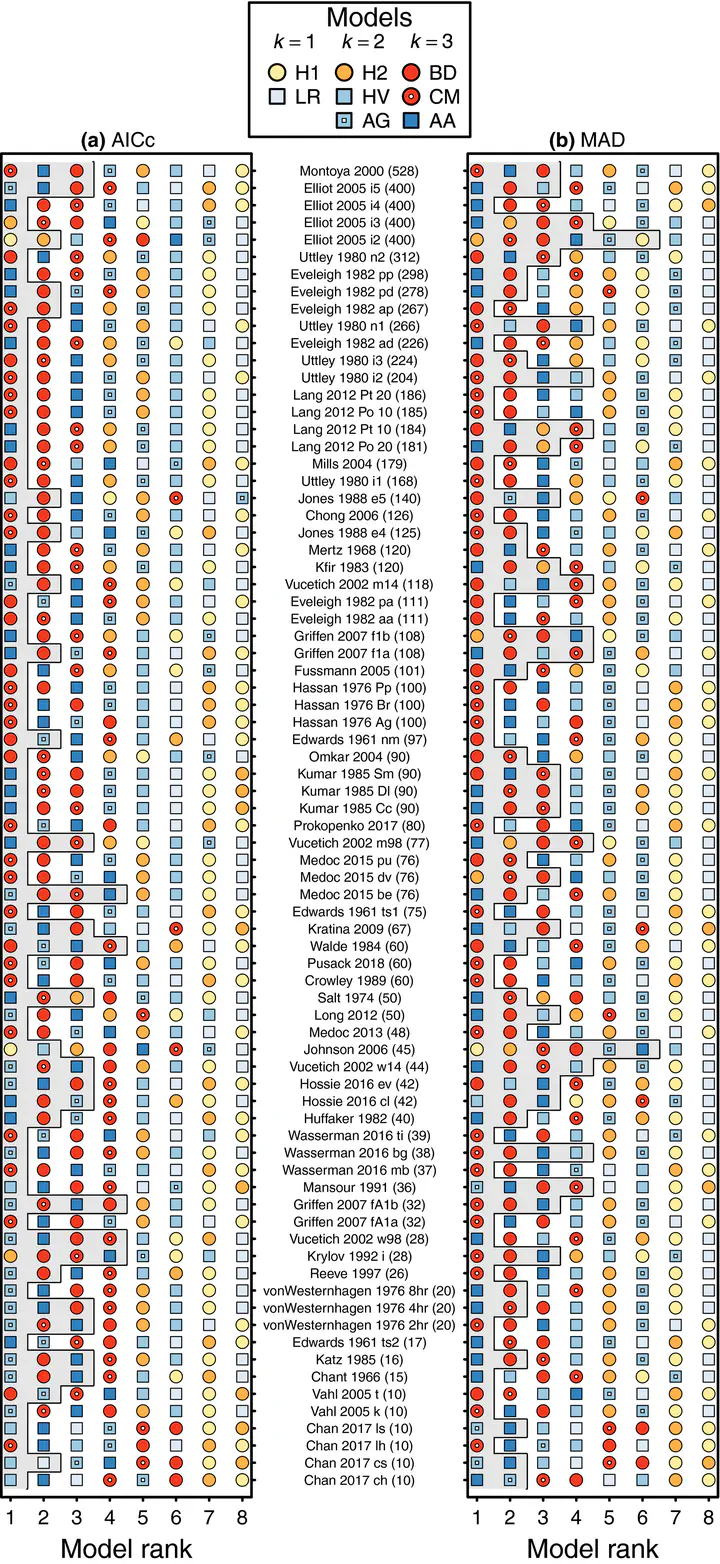
Abstract
Functional responses are a cornerstone to our understanding of consumer-resource interactions, so how to best describe them using models has been actively debated. Here we focus on the consumer dependence of functional responses to evidence systematic bias in the statistical comparison of functional-response models and the estimation of their parameters. Both forms of bias are universal to nonlinear models (irrespective of consumer dependence) and are rooted in a lack of sufficient replication. Using a large compilation of published datasets, we show that ? due to the prevalence of low sample size studies ? neither the overall frequency by which alternative models achieve top rank nor the frequency distribution of parameter point estimates should be treated as providing insight into the general form or central tendency of consumer interference. We call for renewed clarity in the varied purposes that motivate the study of functional responses, purposes that can compete with each other in dictating the design, analysis and interpretation of functional-response experiments.